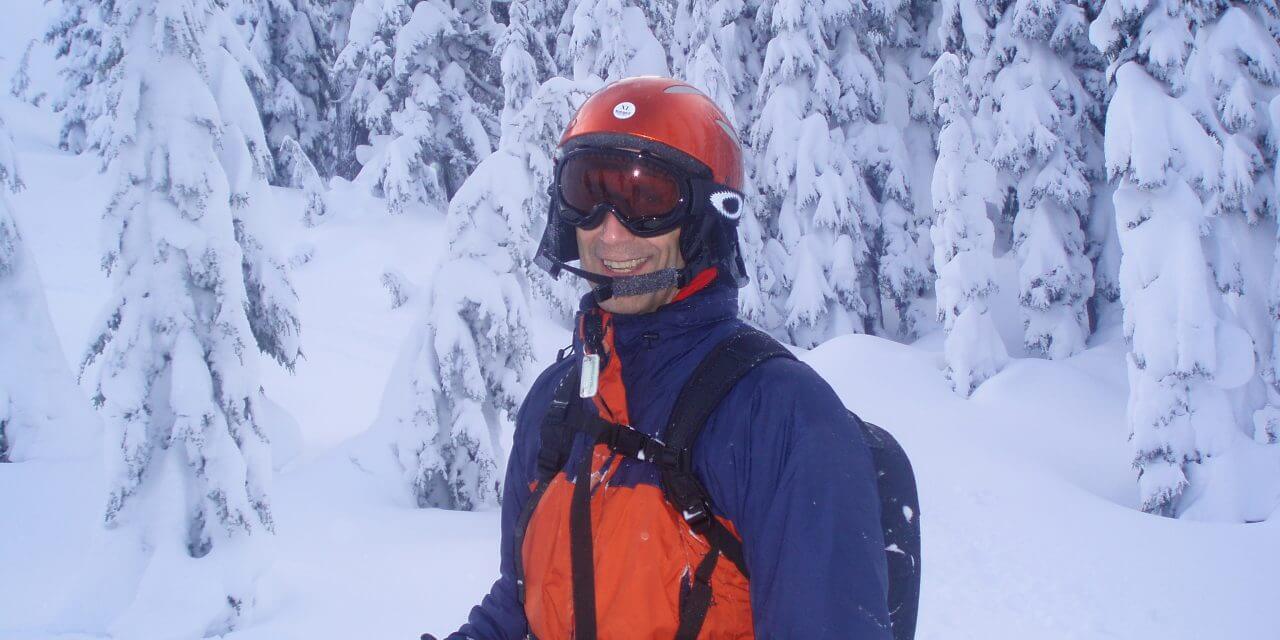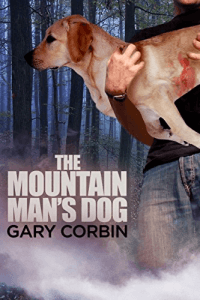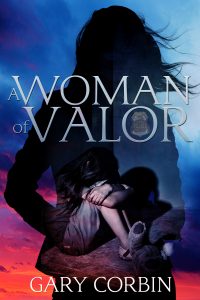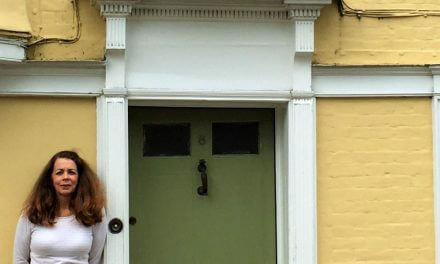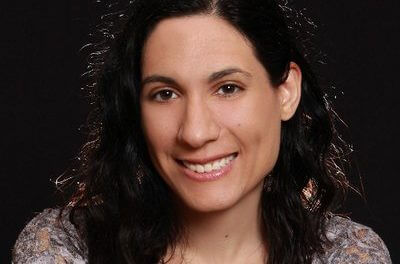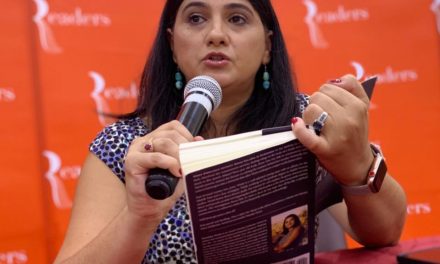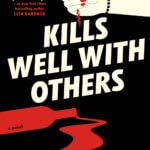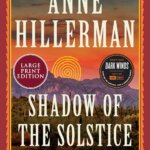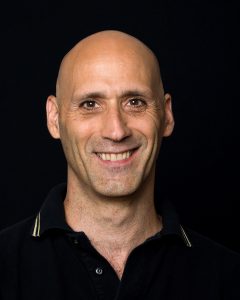
SS: You have a fascinating author’s bio, Gary, but can you share a bit about your background?
GC: I’ve lived all over the U.S. I was born in Massachusetts, moved to Louisiana in my senior year of high school, attended graduate school at Indiana University, and lived for nine years in D.C. before chucking all that and heading to the Pacific Northwest, where I’ve lived for nearly twenty-seven years. I studied Political Science and Economics in college, and while I’ve never held an academic teaching position, I apply what I learned at University in my writing daily—most obviously in my Mountain Man books. I’m an avid fan of my childhood sports teams—the Red Sox and the New England Patriots—even though I live almost 3,000 miles from where they play. But the only sport I continue to indulge in personally is skiing.
I roast my own coffee, won a national home-brewing competition for my beer in 2000, and have been a vegetarian for thirty years.
I was the first in my family to earn an advanced degree (Ph.D.), while my father, who helped me create the story for A Woman of Valor, never graduated high school. In the 1990s, I was an elections monitor in the demilitarized zone in Bosnia, helping to ensure their first free, fair election since the Cold War. I’ve written six novels in the crime/mystery genre, despite never having been a cop, lawyer, or criminal.
SS: What did you want to grow up to be as a child? Has that child’s desire appeared in your work?
GC: My childhood ambitions were all over the map. One fantasy was to play left field for the Boston Red Sox, AND quarterback for the Green Bay Packers—at the same time. I also wanted to be Perry Mason, and that show inspired me to read voraciously in the legal/crime thriller areas. Perry and his nemeses have morphed into several lawyer characters in my novels, both good and bad. Many of my characters also are athletes, like Valorie Dawes in A Woman of Valor and Lehigh Carter in The Mountain Man Mysteries.
SS: What in your childhood contributed to you becoming a writer?
GC: I’m the seventh child of nine, all of us born in the space of eleven years. We lived in a three-bedroom house with one bathroom. I didn’t have my own private bedroom until my senior year of college at Louisiana State University (Geaux Tigers!). We had dinner together as a family every evening, and we were expected to be able to tell everyone what happened that day. Early on we all learned that the more entertaining the story, the more “stage time” we got. Sometimes dinnertime lasted well over an hour, even though we’d finished eating in fifteen minutes. (Eating fast is a skill you develop early in big families.)
But our large family didn’t stop there. Each of my parents had several siblings, too, and they often visited (along with my sixty-five first cousins … yes, sixty-five!). My mother’s side was Irish, and in Irish-American culture, storytelling is an essential life skill. (As they often said, never let facts get in the way of a good story.) But my father’s side—French-Canadian loggers—were equally loquacious and creative, and many of them became models for characters in my stories, particularly in The Mountain Man Mysteries.
SS: Have you always been driven to write? Or did you begin writing in response to a particular stimulus?
GC: My family, particularly my parents, inspired me to write at an early age. My parents’ generation and their parents were great storytellers, be it at the dinner table, around a campfire, or just hanging around playing cards, and we learned early to value the ability to tell a good story. My mother in particular praised and encouraged my writing and made me believe in and develop my writing talents.
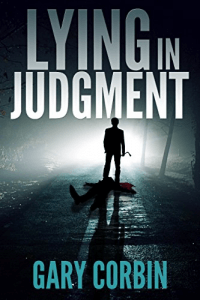
SS: What was an early experience where you learned that language had power?
GC: Probably sassing back to my parents! Seriously, when you have a large family, it becomes obvious early in life that words impact people around you, if for no other reason than you’re surrounded pretty much all the time by people who hear everything you say.
SS: What would you say is your biggest failure in life? Has it appeared in your works?
GC: Probably my divorce, aka the failure of my marriage. While I’ve since met someone who is a far better partner for me now, it still irks me that I couldn’t make that work. Divorce—and marital problems generally—are often featured elements of my books, things my characters often struggle with.
SS: My protagonists want to break out of the female status-quo, though they do suffer from violence against women. I write books that fulfill the Bechdel test (at least two women who talk to each other about something other than a man) and the Mako Mori test (female characters have a narrative arc that is not about supporting a man’s story). Hilary Mantel (Wolf Hall) says that a Catholic upbringing is the only qualification a writer requires. Can you relate to this idea? Do you have any similar writing qualifications?
GC: I don’t know whether being Catholic has helped, but being a descendent of Irish and French-Canadian parents sure did.
SS: What are you working on at the moment?
GC: The sequel to A Woman of Valor.
SS: Which non-literary piece of culture could you not imagine your life without?
GC: Beer and wine. I hope my liver holds out so I can continue to enjoy them.
SS: If you had to pick one other author to write your biography, who would it be?
GC: Steven King. That dude can write, man.
SS: Is there an author whose biography you’d love to write?
GC: Rick Steves, the travel writer. Mostly because I’d like to do all of the field research!
SS: Which of your characters surprised you the most for the decisions they made?
GC: Peter Robertson, the hero of the Lying Injustice Thrillers. I never know what he’ll do next.
SS: Who do you most wish would read your book?
GC: Trevor Noah of The Daily Show. If he liked it, I’d feel like I’d achieved something. Especially if he said so on TV.
SS: What is a fun or strange source of inspiration that ended up in your book (a name, location, line of dialogue, etc.)?
GC: My ex-wife used to mix cream and sugar into her coffee by sipping it and spitting it back into her mug. That became the inspiration for a scene between Lehigh and his father in The Mountain Man Mysteries.
SS: How do you give back to the writing community?
GC: A number of ways. One is by leading writing workshops, for both novelists and playwrights. A second way is by critiquing others’ works, either formally via critique groups or informally when someone reaches out. I also participate in social media fora, chat groups, etc.
SS: What works best for you: typewriters, computer, dictation, fountain pen, or longhand?
GC: I used to write longhand and transcribed into Word (which also served as my first edit pass) until I discovered Scrivener. I’m sold on it! It allows me to build the story in a way that makes the most sense to me, while keeping me organized and efficient.
SS: Regardless of genre, what are the elements that you think make a great novel? Do you consciously ensure all of these are in place?
GC: First off, it needs strong characters with well-defined motivations, strengths, and flaws, whose goals conflict with another strong character. I usually begin with sketching out the main character and their antagonist and the close allies of both, and let their conflicting elements begin to drive the narrative. The second thing is a structural skeleton that pits those characters into conflict in a way that builds tension. Third, voice: the characters and the narrator all need a distinct way of speaking that engages the reader.
SS: Isabel Allende starts all of her books on January 8 because she started The House of Spirits on that date. Do you have any superstitions or creative rituals about your writing?
GC: Only one. I can’t even begin without coffee.
SS: Me, too. With that first cup of coffee, I go hide in my office and start writing. And often have to go make a second cup. Unlike you, I don’t roast my own coffee, but I do freshly grind each cup and use highly-filtered water. Sometimes I make a cup of tea—my current favorite is Tazo’s Glazed Lemon Loaf. Back to the interview now, do you hide any secrets in your books that only a few people will find?
GC: I love doing this! And I love when people discover them and ask me about them.
SS: What part do your own fears play in your fiction?
GC: I write about things that keep me awake at night. That’s the great thing about being a crime/mystery writer.
SS: How do you make your readers regret they’re coming to the end?
GC: Hopefully by making them fall in love with the characters so that they want to keep knowing more about what happens to them after the story’s over. My favorite thing is when people ask for another sequel.
SS: A good ending should fix the shape and meaning of the whole novel. How did you make sure yours do exactly that?
GC: I almost always know exactly how the book will end before I begin writing. The ending drives the plot. And the ending is strongly imbued with the themes of the book. If it’s about justice, the ending must deal with how justice is served, for example. If it’s about love, then the love must be requited in some way. And so on! Sometimes I change my mind, but only because the events of the book demand a different ending. In those rare cases, the plot drives the ending. Either way, they go hand in hand.
SS: Are you looking to entertain or illuminate?
GC: Mostly entertain, but with the Valorie Dawes series (A Woman of Valor, In Search of Valor), I’m also trying to illuminate the reader about the extent to which women suffer from violence, harassment, and discrimination in our society, and how men need to own this problem.
SS: Khaled Hosseini (The Kite Runner) feels he discovers a story rather than creates it. Are you a plotter? Or do let the novel develop organically?
GC: Larry Brooks divides writers into two groups: plotters and “pantsers.” A plotter develops an outline first and knows pretty much the whole story before they begin to write. A pantser writes “by the seat of their pants” without any such plan. I’m neither; I consider myself a “painter,” in that I develop a basic sketch or vision of the story—characters, setting, basic conflict and how it’ll be resolved—and then I start dabbing at the “canvas” that Scrivener provides. The story emerges from the inside out, in a way, without being either fully spontaneous or fully planned.
SS: Over time, what would you say has improved significantly in your writing?
GC: Story structure. When I began, I knew nothing about it. Now I feel that I’m strong enough on structure to advise others.
SS: I think I’ve learned to handle time better. My last novel had three points of view and three timelines which I meshed when each of the characters handled the same piece of mail. How do you feel when you’ve finished writing a novel? Are there any particular characters that you have found it hard to let go of?
GC: I do, and that’s why I keep writing sequels! I feel there’s much more of Valorie Dawes’s story to be told, and I plan to stick with her for a long time. I never feel bad about letting go of the villains, though, even though some of them are the ones I’m most proud of as characters.
SS: I have trouble letting the entire book go. I find myself waking up in the middle of the night thinking I should have worded something differently or that I left a certain detail dangling. Do you read your book reviews? How do you deal with bad or good ones? Does a bad one affect your writing?
GC: I do read them, and try to use the comments to either make my writing better, or to encourage others to read the books! I’ve only reacted to one—a reviewer that clearly hadn’t read the book. She said it was full of sex and violence. I asked her to direct my readers to that chapter, as most of them would want to skip right to it.
SS: In what circle of Dante’s Inferno would you place the average Amazon reviewer?
GC: The average? Heaven. Most of them are saints. It takes effort and courage to post a review, and they get nothing back in return. The few that leave negative garbage … there’s no circle hot enough for them.
SS: What was your first recognition/success as an author?
GC: It all kind of happened at once. In July of 2016, sales suddenly took off for my first two books, and I still don’t know exactly why. Lying in Judgment reached #21 in the Kindle/Mysteries category, and later that month it got picked as “Book of the Week” on Bookworks.com. Sales raged for about three months … then tanked. It was fun while it lasted, though.
SS: What is your most recent book? In twenty-five words or less, tell me why a reader should start your book next.
GC: A Woman of Valor is a character-driven police procedural addressing issues of PTSD as well as violence toward women and girls in a way that inspires optimism for our future.
SS: My second book, Hunting the Devil, also deals with PTSD when a female physician gets trapped in the 1994 Rwanda genocide. Tell me, who’s the protagonist in your most recent work? Describe him/her in ten words or less.
GC: Valorie Dawes: rookie cop with a #metoo past pursuing a sex offender.
SS: What advice would you give aspiring writers?
GC: To the extent you can, collaborate with others. Join or create a writing or critique group that makes you submit your writing for critique. Listen to that critique and be open to suggestion, but don’t let it drive your story. Don’t be afraid to ask people…anything. To read or buy your book; to review it; to recommend it; for advice on story, background, marketing, writing; to write a blurb, a foreword, a blog, whatever. Ask. Sometimes they’ll say yes, sometimes no. But if you don’t ask, the answer is always no.
Buy books of your fellow writers and recommend them to people. They’ll do the same for you, but even if they don’t, it’s the right thing to do.
SS: What’s the best writing advice you’ve ever received?
GC: Keep reading and keep writing. Write every day, because it’s a skill as well as an art, and it takes lots of practice. Reading is the fuel that recharges our writing batteries, and makes us believe that we can do it, too.
SS: Let’s face it, making things up is a strange occupation for a grown-up. But if we accept that statement as true, then writing crime novels must be stranger still. After all, as a crime writer, you spend a lot of your time trying to work out how one person might kill another and get away with it. Do friends and family do tend to look at you in a different way once they’ve read one of your books?
GC: My best friend from childhood looked me square in the eye after reading my first novel and said, “That’s one dark story, Gary.” I think he learned things about me he didn’t want to know.
SS: Must you lay empathy and pity to one side to write crime fiction effectively?
GC: Not at all. In fact the opposite is true: the novelist must develop more empathy than the average person so that we can make the villain the hero of their own story. A story told from the perspective that only the protagonist is justified in their actions is incomplete and often dull.
SS: As I mentioned above, loose details bother me. Do you prefer tidy endings, or can you leave a few loose ends?
GC: I prefer to leave loose ends, for three reasons. One, tying up all the loose ends takes too long and bores the reader. Two, loose ends give the reader something to think about. Three, they give the writer something to play with in the sequel!
SS: A recent Harris Poll showed that women are more likely than men to read mysteries, thrillers, and crime novels (57% versus 39%). Why are women readers so drawn to dark subject-matter?
GC: I think women suffer more in our society than men and long for justice to be served. If they can’t get it in real life, at least they can see it happen in fiction.
SS: Why do you think crime fiction has moved from whodunnit to whytheydunnit?
GC: “Why” is by far the more interesting question and usually is harder to figure out.
SS: You’re offered a contract to rewrite your book in another genre. Which genre do you choose and why?
GC: Science fiction, because I like to read it, and I’d like to know enough about science to write it!
SS: If you tackle meaty ethical issues, how effective do you think fiction is as a bridge between the experts and the public when it comes to stimulating debate? Could it be better employed?
GC: Good fiction gets people thinking and talking without making it personal. We can all develop and express an opinion about whether Character A was justified in killing Character B, for example, but we’d have a much harder time doing that if we knew they were real people. The discussions that fiction generate in book clubs, discussion groups, or at the dinner table can be a gentle way of raising awareness and empathy for other experiences and points of view with minimal personal risk.
Fiction can also inform. In the Woman of Valor novels, my character’s personal experience with assault and violence leads her to research what other women experience, and shares that with the reader. Sometimes it’s in the form of anecdotes, sometimes as statistics or general observations, but whichever form it takes, it educates as it entertains. Hopefully that raises awareness of the issue in its own small way.
SS: I agree. My book, A Different Kind of Fire, looks at a late nineteenth-century artist who tries to break out of the mold Victorian women were expected to fit into, and Hunting the Devil looks at the effect of genocide on one woman. I’ve read and really enjoyed Woman of Valor.
********************
Woman of Valor is available in all formats through this universal link.
********************
Excerpt from Woman of Valor
Chapter Five
Val fired her final six rounds, all hits on the human-shaped target fifty feet away, and smiled. She loved the firing range, and not only because of her second-in-class marksmanship at the academy. With the noise-blocking earmuffs on and her eyes focused on the target, the rest of the world disappeared, leaving her to her own little world of concentration and skill. She yanked off the earmuffs and waited for the automatic pulley system to retrieve her results.
“Pretty impressive, cadet,” came a sneer over her shoulder. “Think you can fire like that when it’s a live body coming at you?”
Val glared at the tall, round-bellied man in uniform watching her from the next shooting lane. The bald dome of his scalp shone with sweat. She recognized him from her fender-bender a few days before: Alex “Pops” Papadopoulos, a twenty-year man with a reputation for laziness and opposition to anything resembling change.
She took a deep breath and choked back a sarcastic jibe about how easy a target Alex would be. Instead she forced a smile and said, “I hope I don’t have to find out. But perhaps you have wisdom to share from your own experience, Sergeant?”
His cocky smile faded and he shifted his weight against the wall. “I’ve had to pull my weapon out a few times,” he said, “but I’ve never had to shoot to kill.”
“Lucky you.” Val brushed past him toward the exit.
“Not lucky,” Pops said behind her, his voice rising. “I’ve just never had to panic, or over-compensate for my weakness or size.”
She whirled to face him. “What’s that supposed to mean?”
Pops smirked and shrugged. “You’re the college graduate, rookie. You figure it out.”
She drew in a slow, deep breath, then exhaled just as slowly. “I’m here to learn, Pops. From my elders. Please share your knowledge with me.” She tried, but failed, to keep the sarcasm out of her voice.
“I’m sure you’re smart, Dawes. But I’d rather my potential partners are half a foot taller, have sixty pounds more muscle, and keep cool in a crisis. A lot of those guys applied for this job. Instead, we hired you.” He sneered and selected a firing lane.
Val stepped toward him. “You think I’m too small to be a cop? That I’ll panic in a crisis? Why would you think that, Pops? Because I’m a woman?”
Pops gazed down at her with a crooked smile. “No, cadet. Not just because you’re a woman.” He stepped closer, looming over her. “It’s because someday, we might have to work together. And I’d rather have someone next to me who can help me survive the encounter, rather than someone I’d have to pull from the bottom of a scrum.”
She laughed. “I can handle myself, Pops.”
He scoffed. “Oh, really? What are you going to do, Dawes, when a 300-pounder gets the drop on you and you don’t have time to reach for your gun? What if the best solution isn’t deadly force, but clocking the S.O.B. and making him eat dirt? What if—”
His talking stopped and he howled in pain, his finger caught in her vise-like grip and twisted backwards towards his wrist.
“What if,” she said, “that 300-pound guy underestimates his opponent?”
“Ow! Jesus! Let go! Let go!”
Releasing his finger, she hooked Alex’s ankle with her own and pushed him by the shoulders onto on the floor. “Oops. Clumsy me. I guess I must have panicked.”
She left the target practice room with a spring in her step. With her ear muffs back in place, she could barely hear Alex’s cursing.
********************
Gary Corbin can be found here on social media:
Landing Page | Website | Blog | Facebook | Instagram | LinkedIn | Goodreads | Product Page
